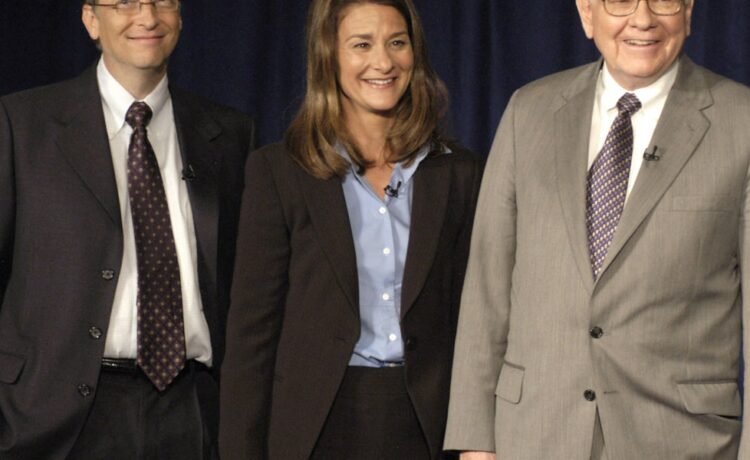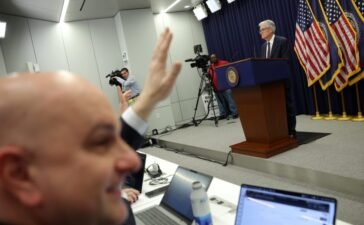Bill Gates and Warren Buffett’s Giving Pledge after 15 years: Only 9 of the 256 billionaires actually followed through on giving away half their wealth


The Giving Pledge is a charitable campaign, launched in 2010 by Bill Gates and Warren Buffett, that invites the world’s wealthiest individuals and families to publicly commit to giving away at least 50% of their wealth to philanthropy, either during their lifetimes or in their wills.
The Institute for Policy Studies’ report “The Giving Pledge at 15” finds that the initiative—where billionaires publicly pledge to give at least half their wealth to charity—remains mostly unfulfilled, with most signatories far wealthier now than when they joined, and a majority of charitable giving funneled into private foundations and donor-advised funds rather than directly supporting operational charities. The IPS team, led by Chuck Collins, Bella DeVaan, Helen Flannery, and Dan Petergorsky, invites the public to examine its data and methodology. Collins is himself an Oscar Mayer heir who gave away his fortune and has dedicated his career to researching wealth inequality.
Few have fulfilled the pledge, according to the IPS calculations. Only one set of living 2010 Pledgers (Laura and John Arnold) have actually given away half their wealth. Among the 22 deceased U.S. Pledgers, only eight met their pledge before death—just one, Chuck Feeney, gave away his entire fortune while alive.
The pledge is a public, moral commitment rather than a legally binding contract; participants sign an open letter explaining their reasons for giving and can choose which causes and charities to support. The initiative was designed to inspire generosity, set new norms for billionaire philanthropy, and shift how major wealth is used to address pressing social challenges
Key findings:
- 256 individuals, couples, or families have signed the Giving Pledge, including 194 from the U.S. and 62 from other countries. Of the U.S. signers, 110 remain billionaires, with combined wealth of $1.7 trillion—about 13% of all U.S. billionaires.
- Among the original 57 U.S. signers in 2010, 32 are still billionaires. Their collective net worth has increased by 283% since signing (166% adjusted for inflation). Only 11 of the original group are no longer billionaires, mainly because their wealth fell below the threshold, not due to giving.
- Giving is mostly to intermediaries: Of an estimated $206 billion donated by the original 2010 Pledgers, roughly 80% ($164 billion) has gone into private foundations—with only a small fraction moved into donor-advised funds. In 2023, 44 foundations tied to these billionaires held $120 billion in assets and paid out a median of 9.2%, often far below the appreciated value of those assets.
- Wealth is outpacing giving: For most, the speed of wealth accumulation exceeds charitable donations, making the pledge functionally impossible to fully realize at current trajectories.
- Tax and public impact: If all living original Pledgers gave enough to meet the promise today, nearly $367 billion would flow to charity. However, such gifts would lead to as much as $272 billion in forgone federal tax revenue, reducing support for public programs, since wealthy donors can claim up to 74% in charitable tax deductions.
- Concentration of philanthropic power: The report warns of a coming “Great Wealth Transfer” that, combined with favorable tax law and slow charitable payout rates, will further entrench billionaire family foundations, concentrate power, and undermine democratic accountability.
Policy recommendations from the report include:
- Raising minimum payout requirements and ensuring funds flow swiftly from foundations and DAFs to working charities, not parked for years.
- Increasing transparency, public accountability, and enforcement to curb abuses of charitable vehicles for personal or political gain.
- Taxing large fortunes more fairly in order to slow excessive accumulation and reduce dependence on private philanthropy.
The report advocates returning to the “giving while living” ethos exemplified by Chuck Feeney, and calls for systemic reforms to ensure charitable donations serve the public interest—not just the tax and legacy interests of the ultra-rich.
The Giving Pledge did not respond to Fortune‘s request for comment.
For this story, Fortune used generative AI to help with an initial draft. An editor verified the accuracy of the information before publishing.
You Might Also Like
J.Crew Designer Collaboration Launch, Rollneck Sweater Remixed 2026
Don't you wish you could own a piece from some of New York City's trendiest designers for an affordable price?...
Layoffs and unemployment are quite low, actually, says BLS
The number of Americans applying for unemployment benefits fell last week, remaining within the historically healthy range of the past...
Olivia Colman on Gender Identity, Feeling “Sort of Non-Binary”
Olivia Colman is sharing her truth. The Favourite star candidly explained why she feels so drawn to projects that include...
Why you shouldn’t worry about AI eating the stock market, top analyst says. The economy is ‘about to take off’
The first week of February was a doozy in markets. Anthropic, one of the more outspoken companies in the artificial...









